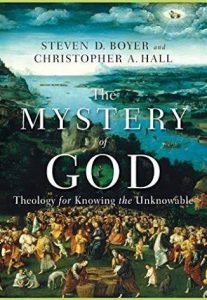 Takeaway: The Mystery of God is a real part of historical Christian Theology. But it is not useful as a way to explain away all the difficult parts of the bible or theology.
Takeaway: The Mystery of God is a real part of historical Christian Theology. But it is not useful as a way to explain away all the difficult parts of the bible or theology.
As I have been reading about the Trinity over the past year or so, I have run across the idea of the mystery of God as an explanation of difficult parts of theology. It often feels more like, “I don’t want to fully deal with this, so I will call it a mystery of God.” At the same time I have been reading introductions to Catholic theology and a few books on the importance of beauty; in both areas there is a full embracing of the need for mystery, not just to explain difficult areas of theology, but to allow for the bigness, uniqueness and unpredictable ways of God.
So I accepted a review copy of the Mystery of God hoping it would touch on more of the later and less of the former.
Boyer and Hall exceeded my expectations. The first part of the book is historical theology. Hall and Boyer walk the reader through a variety of Christian theologians, Aquinas, Augustine, Calvin, Luther and others to illustrate that throughout Christian history the concept of God as unknowable has always been present.







